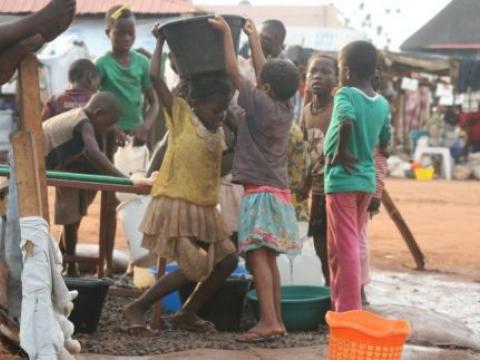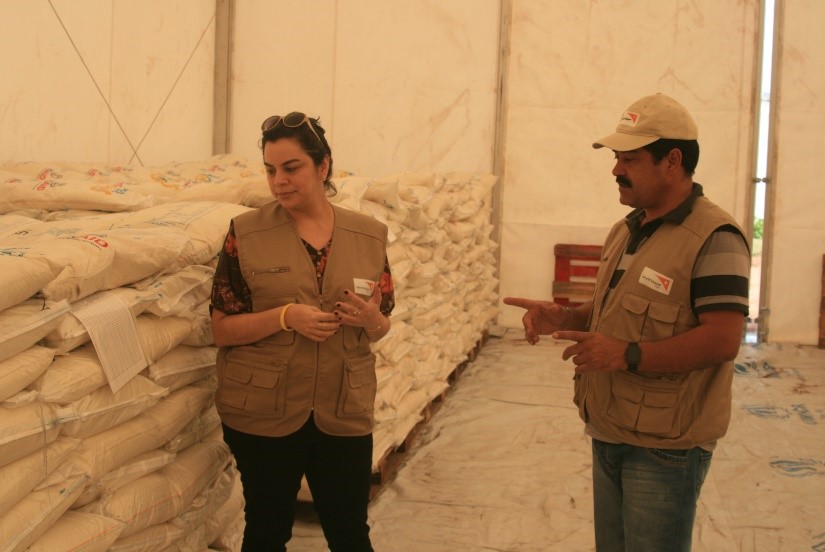An uncertain future for most vulnerable children in Lunda Norte

Célio Njinga HSS Program Manager
Dundo, Angola - A comprehensive response is needed in the Northern part of Angola, where until now over 30.000 refugees have arrived from the Kasai region of the Democratic Republic of Congo (DRC). The ethnic tensions and violence in the region has intensified over the course of the year, resulting in a massive displacement both within and across the borders of DRC.
Forecasts show little chance for the clashes in Kasai to cease, and as a result, until the end of the year a number of approximately 50.000 refugees is expected to be in Angola, of the over 1 million displaced in the DRC. Currently, only one third of the necessary funds have been allocated so far, leaving big gaps in meeting basic needs for the refugees running away from destitution in their homeland. 76% of the registered population in exile constitutes of women and children, representing the most vulnerable part of the society.
“There is a lot of planning for the camp management, however if specific areas such as food security is at risk due to the lack of funding, it could undermine the successful operation of other areas ” -- Artur Caires, Project Manager for Emergency at World Vision.
Female headed households in refugee camps depend more on what is being provided to them by camp authorities, and as a result are more at risk, especially in case of shortages. Although the Government of Angola has been welcoming towards the asylum seekers by ensuring open borders to receive the population fleeing the affected areas, it faces difficulties in providing adequate response in, for example, improved sanitation and water supply. It is important that International and national authorities and agencies realize that there is a need to increase their involvement in order to meet the demand for shelter, water, food, healthcare, education, just to name a few areas, and to avoid a humanitarian catastrophe.
Furthermore, a unique and fragile situation is of those unaccompanied minors, who arrived to the country without adult supervision. They require remarkable assistance and a particular protection against trafficking and abuse, besides the general need for shelter, food, water, health and education. Child protection is one of the main areas of responsibility where World Vision is actively involved in. Children running from home, experiencing violence and all kind of hardships are especially most vulnerable and require assistance and help to deal with emotional and mental issues. On the other hand, mental health requires physical wellbeing and therefore World Vision since the beginning has been overseeing food distribution and security in the camps.
There is a need of a strong coordinated multi- sectoral approach to face and embrace the challenge and atrocities caused by this civil war conflict, there is a need of action, unity and responsiveness.
